By Alisha Verly-Jensen and Krista Kurlinkus
Nonprofits at all stages of development can benefit from working with a professional grant writer. Organizations seeking grant funding for the first time can turn to a grant writer to review their grant readiness and identify suitable opportunities.
At the other end of the spectrum, nonprofits that have secured several grants may need help managing the extra administration and writing tasks that often accompany grant awards. Either way, grant writing professionals are valuable, both in terms of money and skills. To make the most out of the collaboration, you’ll want to be prepared before you spend money on these services.
If you are interested in hiring a grant writer, either as a member of your staff or as a consultant, this article is for you.

5 must-haves before hiring a grant writer:
1. Have the necessary registrations
Unlike donations and fundraisers that raise money from individuals, grantmakers are usually organizations or government agencies. Like a nonprofit, grantmakers have very strict regulations for how they distribute their money. For this reason, they require that all of their applicants are in good standing and properly registered. This includes having a valid 501(c)3, being registered with the relevant Secretary of State, and other criteria.
Applicants to government and international grants will also need to register with SAM.gov and obtain a DUNS number. Having all of these registrations completed is the most basic level of grant readiness for these types of grants.
Missing any of these criteria can make a nonprofit ineligible for even applying for grants. If this seems overwhelming, you can hire a grant writer to help your organization become grant ready and keep them on to write grants once you’ve met all of the requirements.
2. Have your financial information in order
In most cases, grants are designed for nonprofit organizations that already practice sound financial management. It’s very common for a grantmaker to ask for documents such as an audit, financial statement, or organizational budget.
Getting financially grant ready involves hiring an accountant familiar with nonprofit accounting. You should also work closely with your board of directors to create an annual budget for your organization, current programs, and future programs.
3. Have the funds to hire a grant writer
Most grant opportunities are designed to fund future programs or the expansion of current programs. Grants are not the best fundraising strategy for nonprofits in severe financial straits.
Some grantmakers, including government agencies, will not accept applicants that owe certain types of debts. In most cases, grant funding cannot be used to cover funding gaps or past expenses. The one exception to this is COVID-19 relief grants, which you can learn more about here.
Hiring a grant writer is an investment.
Professional grant writers will not work on commission as it is against the standards of nearly every professional fundraising association. Some grant writers charge hourly or per grant proposal, which may be more affordable for you.
Either way, set a budget for hiring a grant writer before you go seeking one. You need to know what you can afford before you start the conversation.
It’s good to point out that working with a grant writer can have an amazing rate of return. In my personal experience, a client paid me $2,000 to write three grants. She won all three and secured awards totalling more than $500,000.
Of course, this doesn’t always happen, but generally one award will more than make up the cost of a grant writer.
*Note: Most grants will not cover grant writing expenses incurred before the award period. However, funds for future grant writing consulting fees or a salary are sometimes permissible in a budget.
4. Have the capacity to run the program your nonprofit is seeking funding for
This advice sounds a bit strange, but there is a phenomenon in grant seeking that many nonprofits fall into. In the quest to find a matching grant opportunity, organizations may create programs simply to qualify for a grant. This is a poor strategy for several reasons.
Firstly, grants usually have very short timelines and a hastily put together program will not wow the reviewers (and they can tell). In the best case scenario, your application gets rejected immediately. In the worst case, you get the award, but cannot fulfil all of the promises made to the grant maker. Not only can this ruin a nonprofit’s reputation, but it can become another expense. The grantmaker is within their right to rescind their award in full, even if you’ve already spent some of the money.
If you have a program idea that fits a grantmaker’s criteria, but you currently do not have the capacity to carry out the program, consider reaching out to the grantmaker to see if the opportunity will be offered again. If so, that can provide enough time for your organization and the grant writer to put together a viable proposal.
5. Have the essential dos and don’ts of a business relationship with a grant writer down
Like all aspects of the nonprofit industry, grant writing is highly regulated. Before hiring a grant writer, you should be very familiar with your state’s laws about working with fundraising professionals.(You can find this information at your state’s Secretary of State website.)
In some states, contracted grant writers must be registered. (This doesn’t apply to hiring a grant writer as an employee or volunteer, only as an independent contractor). If your organization is incorporated in a state with this requirement, make sure any grant writers you work with are properly registered. Even if the grant writer lives out-of-state, they must register where you operate to be compliant.
Grant writers can offer different types of services, but there are several things they cannot do. For example, they cannot stand-in as a fiscal signatory for your organization. Your grant writer should work in coordination with your entire team, especially the executive director and the board.
To have the best experience with a grant writer, propose grant opportunities you’re interested in with plenty of buffer time before the due date, ideally at least three weeks out. This allows the grant writer and your staff to gather the necessary documents as well as prepare and revise the application. The grant writer will probably have a lot of questions and will reach out to you frequently. It can be helpful to assign one person in your organization as the point of contact for the grant writer. This will streamline the whole process and prevent information getting lost or duplicated.
If possible, start working with the grant writer on a small project that will allow you to see how the relationship goes, get a sense of their writing quality, and see if it’s for you. Then if the experience goes well, contract with them on a long-term basis or for larger projects.
Hiring a grant writer is a big decision. As grant writing consultants, we don’t take it lightly. We know that our clients are investing a lot of time, money, and hope in us.
But the investment in a grant writer can pay off more than any other investment in your nonprofit.
Let us know what questions you have about hiring a grant writer!

Ready to take the next step and work with a grantwriter?
We do one-on-one coaching with nonprofit and government leaders, academic grant writers, and even individual artists.
After our one-on-one sessions, you may choose to do a longer term engagement with us at lower hourly rates, but (just as we advise above) we always start with 1, 3, or 5 hour bookings.
During that time, we can help you get grant ready, draft or revise a grant with you, or even find grant opportunities that are a great fit for your work.






